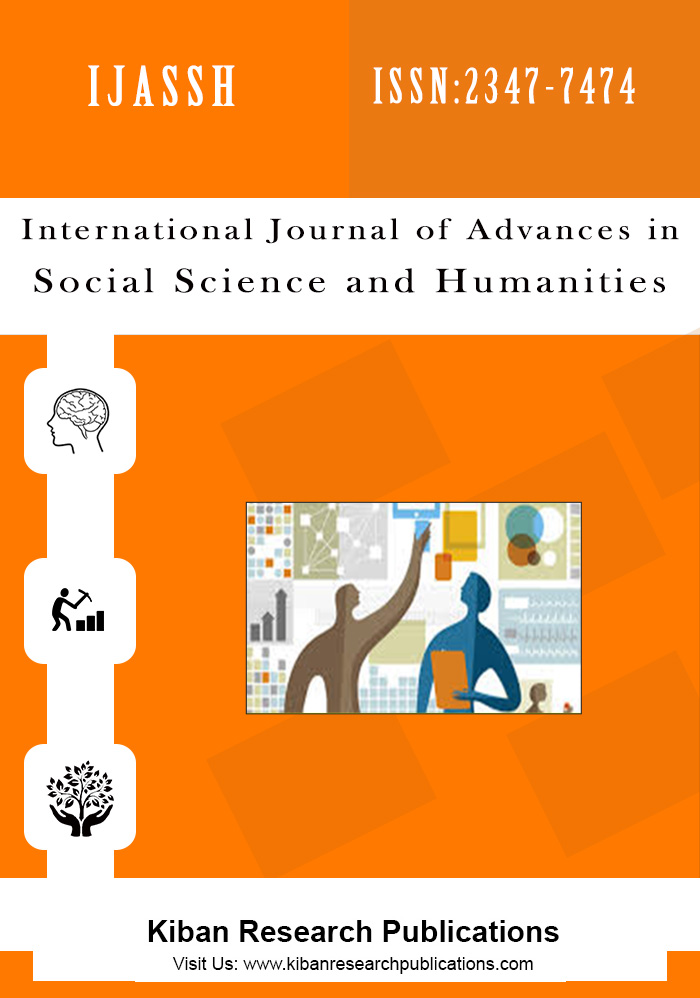CONFLICT MANAGEMENT IN POST-ELECTION CRISIS AND ECOWAS PROTOCOL ON DEMOCRACY AND GOOD GOVERNANCE IN GAMBIA
Keywords:
ECOWAS, Election, Democracy, Conflict Management, Gambia.Abstract
Democracy and its consolidation seem to be a big challenge in the West African sub-region of which Gambia is part. To address this challenge, ECOWAS implemented its protocol on Democracy and Good Governance in Gambia through military intervention in the 2016 post-presidential election crisis. Although the protocol achieved some successes following the 2016 presidential election crisis in Gambia, yet, the Gambian political terrain remained volatile as the post-election crisis continued. Existing literature focused more on ECOWAS role in conflict management in West Africa; while the issue of the application of the protocol on democracy and good governance has not received much-needed scholarly attention, in respect to the Gambian political impasse. The study appropriates the documentary method by generating data through secondary sources. Using the descriptive method of data analysis, the study recommends that ECOWAS leadership should adopt a more comprehensive and collaborative measures among member-states that ensure a strict entrenchment of democratic practices and good governance in both Gambia and among member-states.
References
Abatan, E. & Yolanda S. (2016), “African solutions to African problems? The au, r2p and côte D'ivoire”, South African Journal of International Affairs, Vol. 23 No.1, pp. 21-38.
Abdoukabirr d. (2024), “Towards democratic consolidation in the Gambia: assessing the post-Jammeh era”, International journal of Research in Education Humanities and Commerce, Vol.5 No.1, pp. 332- 341.
Aning, K. & Edu-Afful F. (2016), “African agency in r2p: interventions by African union and ECOWAS in Mali, Cote D’ivoire, and Libya”, International Journal for Social Sciences Review, Vol. 18 No.1, pp.120-133.
Azar, Edward. (1986), “Protracted international conflict: ten propositions. In Edward A. & John W. Burton (eds). International Conflict Resolution, 27-39. Wheatsheaf Books.
Bappah H. Y. (2014), “ECOWAS and the promotion of democratic governance in West Africa”, Journal of International Relations and Foreign Policy, Vol.2 No.1, pp.85-102.
Bekoe, D. (2012), “Introduction: the scope, nature and pattern of electoral violence in sub-Saharan Africa. In Dorina a, Bekoe (ed.). Voting in fear: electoral violence in sub-Saharan Africa. Washington, DC: United States Institute for Peace, pp.1-13.
Ben‐Aaron, J., Denny, M., Desmarais, B., & Wallach, H. (2017), “Transparency by conformity: A field experiment evaluating openness in local governments”, Public Administration Review, Vol. 77 No.1, pp.68-77.
Benjamin, L. (2017), “Freedom of information acts in the developing world: Lessons from the Caribbean for the Bahamian experience”,International Journal of Bahamian Studies, Vol. 23, pp. 7-14.
Bercovitch, J. (1985), “Third parties in conflict management: the structure and conditions of effective mediation in international relations”, International Journal, Vol. 55 No. 4, pp. 736-752.
Fischer, Jeff. (2002), Electoral conflict and violence: a strategy for study and prevention. IFES White Paper 2002-01. International Foundation for Electoral Systems.
Flores, T. & Nooruddin, I. (2012), “The effect of elections on post-conflict peace and reconstruction”, Journal of Politics, Vol. 74 No.2, pp. 558-570.
Gochman, C. & Zeev M. (1984), “Militarized interstate disputes, 1816-1976 procedures, patterns, and insights”, Journal of Conflict Resolution, Vol. 18 No.4, pp.586-615.
Goertz, G. & Paul F. (1993), “Enduring rivalries theoretical constructs and empirical patterns”, International studies quarterly, Vol.37 No. 2. pp. 147-171.
Hartmann, C. (2017), “Ecowas and the restoration of democracy in the Gambia”, African Spectrum, Vol. 52 No.1, pp 85-99.
Joshua, S., Ityonzughul, T.T. & Amoke, G.O. (2020), “Ecowas and the management of the post-2016 presidential electoral conflict in Gambia. KIU Interdisciplinary Journal of Humanities and Social Sciences, Vol. 1 No.3, pp. 35-40
Livinus I. O. (2015), “Diplomatic methods of conflict resolution (A case study of ECOWAS)”, Global Journal of politics and law Research, Vol. 3 No. 2, pp.27-42.
Okere, L. I., and Ph, D. (2015), Ecowas conflict management and peace-keeping initiatives. In 44
Saine, A. (2015), “The Gambia’s deepening governance and economic crises: 1994-2015”, pp. 256-273.
Sanyang, E. & Camara, S. (2017), The Gambia after elections: implications for governance and security in West Africa. Retrieved from http://library.fes.de/pdf-files/bueros/senegal/13225-20170310.pdf
Thomas K, Tieku, Afua B, (2024), “Exploring communities of practice from an informality perspective: insights from the au, ECOWAS and un in west African Mediation Theatres”, Vol. 4 No. 1,pp.335-511
WANEP (2018), Inter-political party tension in the Gambia ahead of local government elections. http://www.wanep.org/wanep/files/2018/Jan/Quick_Update_-Political_Tension_in_the_Gambia_-_Final_16-01-18.pdf West Africa, Vol. 37, pp. 30-46.
Yabi, G.O. (2010), The role of ECOWAS in managing political crisis and conflict: The cases of Guinea and Guinea-Bissau. Friedrich-Ebert-Stiftung, Abuja, Nigeria. Retrieved from https://library.fes.de/pdf-files/bueros/nigeria/07448.pdf.
Zartman, I. W. (2007), Negotiation and conflict management: Essays on theory and practice. Routledge.
Published
How to Cite
Issue
Section
Copyright (c) 2024 Ndubuisi Isaac, Sopuru Isaiah Omeji, Ogomegbunam Perpetua Anierobi, Catherine Chinecherem Enekwechi

This work is licensed under a Creative Commons Attribution 4.0 International License.




